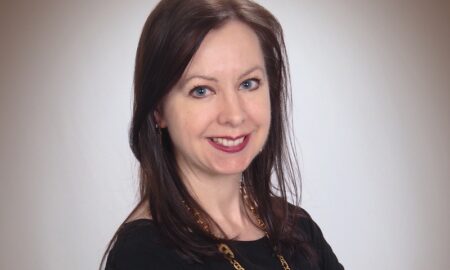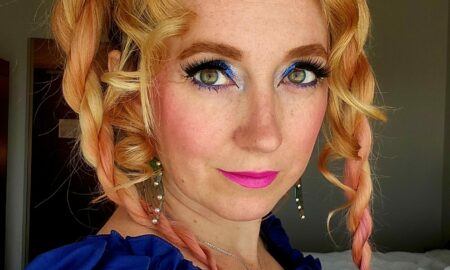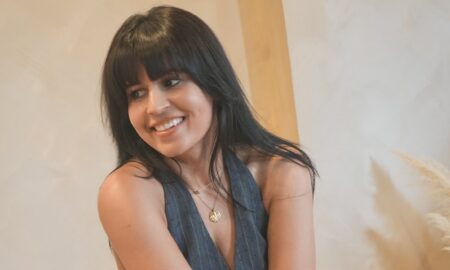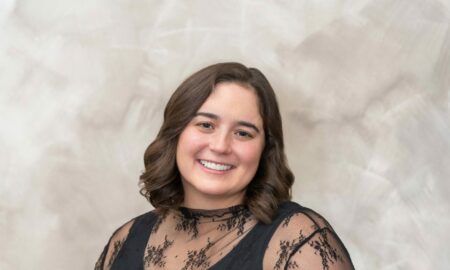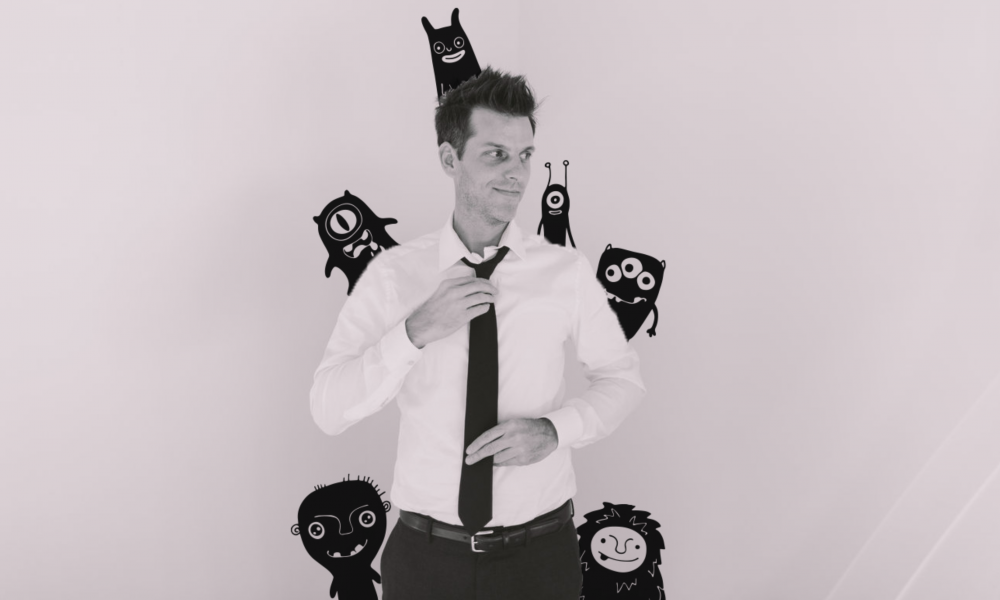

Today we’d like to introduce you to Hudson Phillips.
So, before we jump into specific questions about what you do, why don’t you give us some details about you and your story.
The second screenplay I ever wrote sold to Lions Gate Films and it all went downhill from there. There’s a danger in finding early success in that a lot of times you just aren’t ready for it.
I knew in middle school that writing was what I was put on earth to do. After the loss of my father at a young age, I disappeared in movies and comic books as a way to cope with the pain. I would spend every moment, from the time I got home from school to the time I went to bed consuming stories. Being an extremely introverted kid, I never excelled at school until Mrs. Love’s 7th grade English class, when for the first time, I was going over and above in my school-work, turning a one-page assignment into a 19-page story, and the teacher having me read my work in front of the class. I had discovered my voice. I had discovered a way to cope with my emotions through writing by turning those difficult life questions into works of sci-fi and fantasy works of art.
After a detour through the world of music, I finally landed on my feet as a screenwriter in my mid-20s, when I wrote a couple of screenplays with two high school best friends. One of those screenplays, a sports comedy about Church League softball ended up getting us a lot of attention, with the film being optioned by Lions Gate Films and even made under the title Crackerjack. Being Atlanta natives, we got a lot of attention at the time, interviewed in the AJC and on 99X (to give you an idea of how long ago this was), and touted as an example of “Atlanta talent striking it big in Hollywood.” But things quickly went downhill as we faced a writer’s strike, a changing of leadership at Lions Gate, and our script being thrown out and completely rewritten. It was a difficult but important learning process for us. And as we attempted to follow that success up, we struck out again and again. As a single-dad at the time, I couldn’t make the move to L.A. and no one was coming to Atlanta to look for writing talent. My two writing partners went their separate ways and I was stuck in Atlanta, continuing to write, but facing rejection at every turn.
Around this time, I started to tap back into my middle-school roots: taking those tough life experiences and turning them into giant world-building sci-fi and fantasy stories. I was loving screenwriting again, not because I was finding success, but because I was being true to my voice and my calling.
And as the years passed, Atlanta started to become a hub of filmmaking talent. All the cast and crew who were busy making Marvel movies during the week were hungry for some home-grown, thought-provoking indie film to work on over the weekends. I connected with a director friend of mine, Jordan Noel, and the two of us launched a new career: that of indie filmmakers. I wrote and produced the short film Rooney’s World (which you can watch now on the THEA app), an ambitious first film that mixed live-action and animation and it turned out to be one of the most rewarding creative experiences of my life. It was screened on Atlanta’s PBS station, had a successful festival run and picked up for digital and cable distribution.
We followed Rooney’s World up with some more short films as well as corporate and non-profit gigs but longed for the big dream: to make a feature film. And in the fall of 2017, we shot This World Alone, our first feature film about three women attempting to survive in a post-apocalyptic world, over 10 days in Hiawassee, GA. It was everything I longed for: connecting with a group of talented collaborators to tell a powerful story that asks big questions about the world while also proving to be an entertaining genre flick. We are on the tail end of our festival run with the film and have won best feature at Phoenix Film Festival, Oxford Film Festival, and Windy City Film Festival, as well as taking us across the world, from San Diego Comic-Con to Salento Film Fest in Italy to local Atlanta festivals like Rome and ME.
But it wasn’t enough to provide that experience for our team, I wanted other writers to be able to see their films brought to life, so I took the lessons I learned from making This World Alone and started Mirror Box Films, an independent production company to produce genre films that reflect humanity. I, along with producer Terri Adams, started developing a slate of 6 feature films that fit a certain budget & genre mold to be produced here in Atlanta, from inception to post-production, and we’re currently looking for investors to help us get the slate of films off the ground.
Great, so let’s dig a little deeper into the story – has it been an easy path overall and if not, what were the challenges you’ve had to overcome?
The biggest struggle as a writer, producer, or any creative is just the sheer amount of rejection you face along the way. It’s really a brutal business, in part because stories feel so personal to us. We take a rejection of our stories as a rejection of ourselves, and it’s no doubt that you see so many writers unable to keep going after so many years of that. I’ve seen it all, from losing contests to bad reviews, to rejection from festivals, rejection from investors, rejection from other creatives as we’ve all been talking to that person who is constantly looking for someone more important in the room to talk to! In fact, I started an online community for writers called ScriptBlast to be a light and source of encouragement in their journey.
But then, some of the struggles end up being strengths, such as having to be in Atlanta to raise my son, I couldn’t entertain moving to Hollywood to try to make it as a writer, so I had to get creative and start producing work here, which I wouldn’t trade for the world. The most rewarding moments in my life came from moments of desperation and the most creative moments in my life came from limitations.
Please tell us about Mirror Box Films – what should we know?
The first goal of Mirror Box Films is to produce low-budget, high-concept feature films that ask big questions about the Universe. We want to tell elevated stories in the genres we love (sci-fi, fantasy, horror) that attempt to add beauty to the world. For us, it’s all about building a community of beautiful people making beautiful things. We also put an emphasis on female characters (5 of our 6 films currently in development have female protagonists) and female talent (half of our cast & crew on our first feature were women—a scenario that shouldn’t be rare, but unfortunately is). We hope to continue to push the envelope of diverse, original film content in Atlanta and help define what the indie film scene in the city looks like.
The second goal is to create a community around elevating underserved voices in indie film and geek culture. We do this through a blog and podcast over on MirrorBoxFilms.com. So many filmmakers struggle to get the word out about their films. Most creatives know how to make great content, but we’re terrible at selling and promoting it. We hope to fill in some of that gap for these filmmakers by promoting their material and educating upcoming filmmakers about how to avoid some of the pitfalls.
The two things that really sets Mirror Box apart are: One, we push to develop original voices in the Atlanta film scene by creating a Pixar-style story brain-trust to develop screenplays that fit a certain level of genre, budget, and theme exploration, and secondly, we want to hyper-focus on and serve our audience where geek culture and frequent arthouse moviegoers crossover.
Is there a characteristic or quality that you feel is essential to success?
I grew up in and around Atlanta (Gwinnett County) and, as I mentioned earlier, was a painfully shy kid. I spent most of my time disappearing into movies, TV, comics, and books. But spent equal amount of time creating. In my middle school years, I had an entire comic book universe created and drawn out with hundreds of characters. By high school, I had started playing music, recording little snippets of my own stuff, writing songs, making dumb VHS movies with my friends, and wrote my first attempts at a novel and screenplay during that time as well.
For me, overcoming my insecurities and anxiety was the hardest part. At the time, no one talked about “anxiety” as if it was a real thing. No one seemed to understand why I couldn’t talk and avoided social situations like the plague, and generally found myself as the butt of jokes “Hudson, you need to stop talking so much!”. It took years and years to learn and grow and become okay with myself. It’s funny how much those informative experiences influence my writing even to this day.
Contact Info:
- Website: MirrorBoxFilms.com
- Email: mirrorboxfilms@gmail.com
- Instagram: instagram.com/mirrorboxfilms
- Facebook: facebook.com/mirrorboxfilms
- Twitter: twitter.com/mirrorboxfilms
- Other: https://anchor.fm/mirrorboxfilms (podcast)








Suggest a story: VoyageATL is built on recommendations from the community; it’s how we uncover hidden gems, so if you or someone you know deserves recognition please let us know here.














